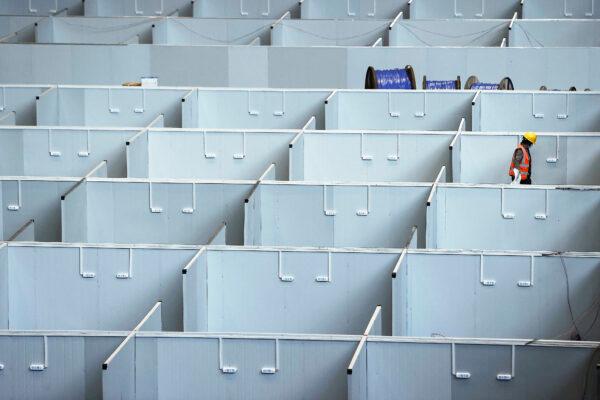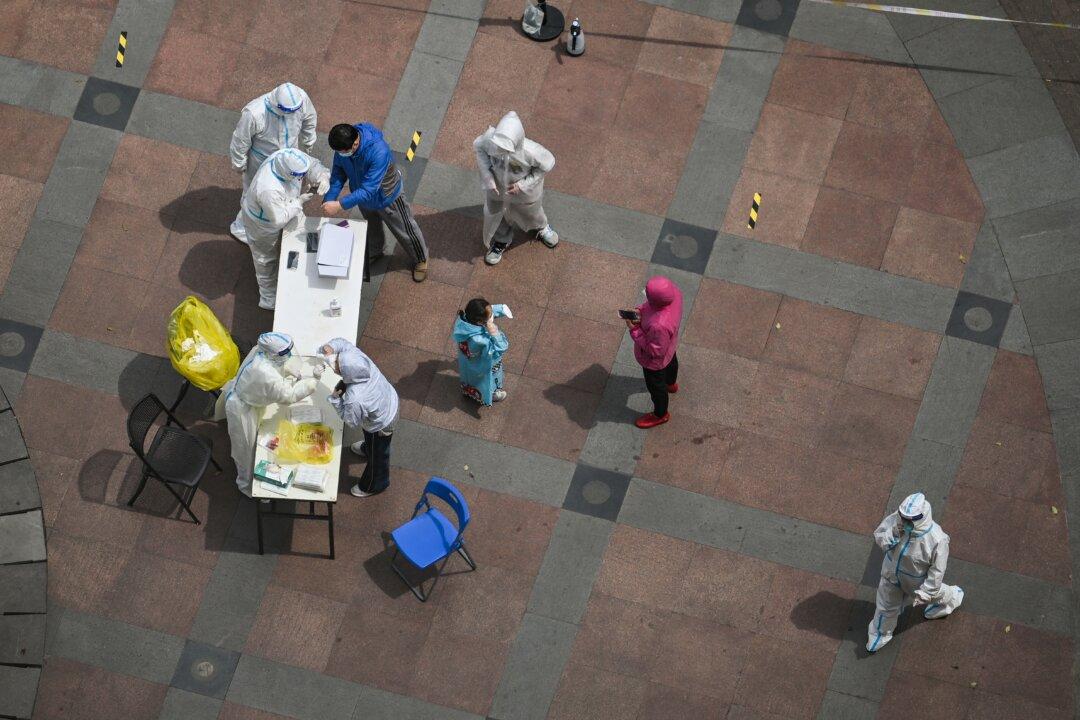At least four nurses from a Shanghai hospital went on strike to defy management, who told them to keep working despite testing positive for COVID-19. This and other chaotic pandemic measures have recently come to light.
“We four all tested positive, but leaders told us to go to work, which we refused,” said one of the strikers who preferred to not be named for safety concerns. “Then they threatened to break down the [dorm] door and cut off our food supplies.”
Aiyide Liantai Nursing Home, a Shanghai aged care hospital in Baoshan district, has been locked down since March 25 amid China’s most severe documented outbreak. The Chinese financial hub reported more than 26,000 new infections on April 10, a two-year high despite an extended lockdown of the city’s 25 million people.
A week ago, the facility detected its first staff member who had signs of a fever, according to the unnamed nurse, who later, also developed COVID symptoms, such as sore throat, coughing, and muscle weakness, on April 7.
The aged-care facility has more than 700 elderly people, at least 100 nurses, 30 doctors, and over 50 rehabilitators, half of whom should have been infected by now, the nurse estimated. Evidence provided to The Epoch Times also showed that test results for most patients on the sixth floor were positive.
Workers on the sixth floor, the hardest-hit area in the hospital, according to the nurse, can only take sick leave if they have a rectal temperature of 38°C (100.4°F) or higher, after being infected.
“The disease is heartbreaking, but this so-called ‘life-saving’ hospital is even more chilling,” said the nurse after being infected. She accused leaders of her workplace of caring more about their own interests than workers’ lives.
The Epoch Times called the Aiyide Liantai Nursing Home, Chinese Centers for Disease Control and Prevention, and National Health Commission in Baoshan district, but none answered the phone.

After temporarily leaving their jobs, however, the four nurses found themselves largely out on a limb.
Local law enforcers have sealed the hospital with cordons outside, meaning unauthorized leave is impossible. Calls to local health authorities and police for assistance didn’t result in any action. The nurse also said that social media platforms including Twitter-like Weibo, and Douyin, the Chinese version of TikTok, have banned her from posting any COVID-related information.
Chaotic System
Heartbreaking videos and stories that emerged in Shanghai communities and hospitals underscored the chaotic system under draconian lockdowns. Victims reported clumsy separation rules, unliveable quarantine conditions, denials of hospital entry for critically ill non-COVID patients, pet cullings, and overburdened community workers.Two weeks ago, a 49-year-old Shanghai nurse died of an asthma attack after being turned away from the hospital where she is employed. She was told the emergency room was closed for disinfection following COVID-19 restriction.
The harsh quarantine environment also triggered grassroots outrage as people had no access to electricity, water, or medical care. Some had to sleep on concrete slabs in makeshift hospitals. Videos show patients suffering mental breakdowns after no running water to wash their faces or flush the toilet for three days, and no disinfection or nucleic acid testing being done.
Meanwhile, uninfected people stuck at home told The Epoch Times they had received no government food drop-offs or struggled to place online orders for food and other necessities in the past weeks. A video surfaced online showing Shanghai residents confined to their communities digging for wild vegetables in their neighborhoods.
An audio recording that went viral online shows a young man calling a local police station, asking if the police will provide him food if he was under arrest for deliberately breaching the lockdown rules.




